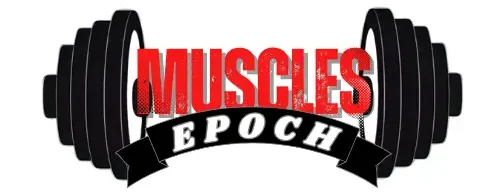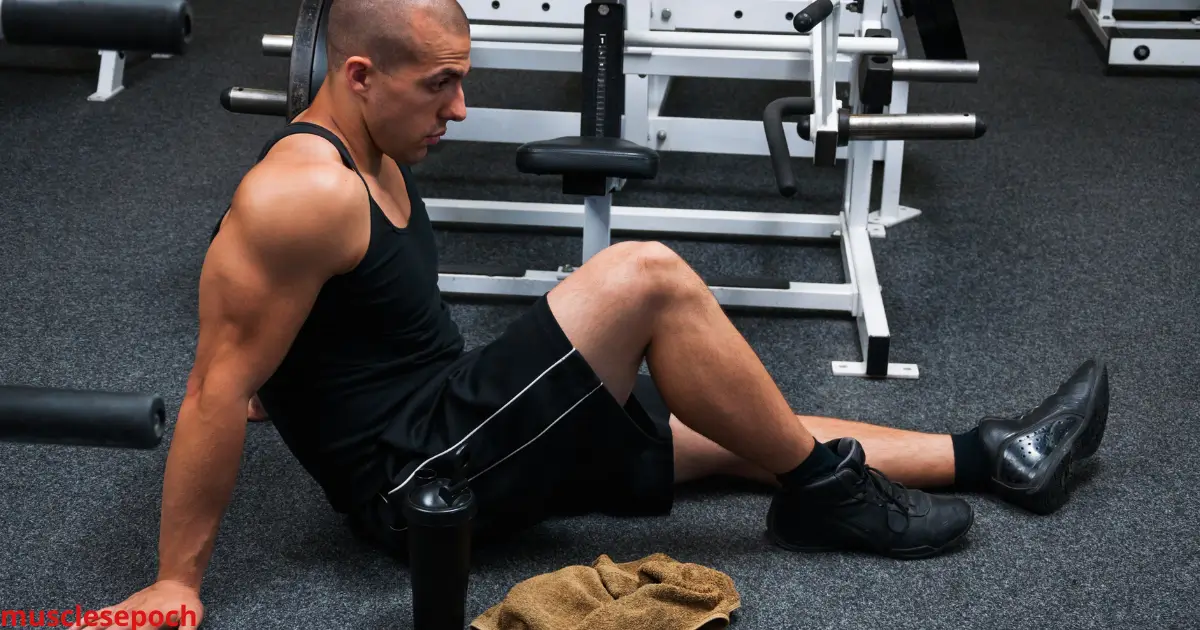Fueling your body at the right time can make a significant difference in how you perform during workouts and how effectively you recover afterward. Whether your goal is to build muscle, burn fat, or improve endurance, understanding the distinction between pre- and post-workout nutrition is crucial. It’s not just about what you eat—but also when you eat it. This guide will help you understand how to optimize your meals before and after training to maximize results, maintain energy levels, and accelerate muscle recovery.
Why Nutrient Timing Matters for Performance and Recovery
Understanding the Role of Glycogen and Energy Stores
Glycogen plays a crucial role in fueling your workouts and optimizing recovery. It is the stored form of carbohydrates found primarily in your muscles and liver, and it serves as a readily available energy source during physical activity—especially high-intensity or resistance training. When you exercise, your body taps into these glycogen reserves to power muscle contractions, delay fatigue, and maintain performance levels.
Pre-workout nutrition should focus on replenishing glycogen stores to ensure you begin your session with optimal energy levels. This means including complex carbohydrates like oats, whole grains, fruits, or sweet potatoes about 60–90 minutes before training. These slow-digesting carbs provide a steady release of glucose, which your body stores as glycogen and utilizes during your workout.
Post-workout, your glycogen stores are depleted and need to be refilled. Pairing carbohydrates with protein after exercise not only replenishes glycogen but also aids in muscle recovery and growth. Quick-digesting carbs such as white rice, bananas, or dextrose powders are effective at this stage, helping to shuttle nutrients into muscles rapidly.
Failing to properly manage your glycogen stores can result in decreased strength, sluggish performance, and suboptimal muscle growth. Understanding how glycogen functions helps you better time your meals and optimize both your energy levels and muscle recovery throughout your training cycle.
Protein Synthesis and Muscle Recovery Post-Workout
One of the most critical processes that occurs after a workout is muscle protein synthesis (MPS) — the body’s natural mechanism for repairing and rebuilding muscle fibers that were broken down during training. When you engage in resistance or endurance exercises, microscopic damage occurs in the muscle tissue. Post-workout nutrition, particularly protein intake, plays a vital role in initiating and optimizing the recovery process.
Consuming protein after a workout provides the essential amino acids — especially leucine, a key activator of MPS — that your body needs to rebuild stronger, more resilient muscle fibers. This is when the body transitions from a catabolic (muscle-breaking) state to an anabolic (muscle-building) state. Failing to provide sufficient protein after intense exercise can delay recovery, increase soreness, and hinder muscle growth.
Experts recommend consuming 20–40 grams of high-quality protein within 30–60 minutes after a workout for optimal results. Sources like whey protein, lean chicken breast, eggs, Greek yogurt, or plant-based protein powders (such as pea or soy protein) are excellent choices due to their high bioavailability and rich amino acid profile.
In addition to protein, pairing it with fast-digesting carbohydrates can help restore glycogen levels and support insulin response, which further enhances the uptake of nutrients into muscle cells. This combination not only accelerates recovery but also prepares your body for your next workout session.
In summary, prioritizing protein intake post-workout is essential for maximizing muscle recovery, enhancing hypertrophy, and maintaining overall training performance over time.
Hydration and Micronutrients’ Role in Workout Nutrition
While macronutrients like protein and carbohydrates often take center stage in workout nutrition, hydration and micronutrients are just as vital for optimizing performance, endurance, and recovery.
Hydration: The Foundation of Performance
Water is essential for nearly every bodily function, especially during exercise. When you train, you lose fluids through sweat — and even a 2% drop in hydration levels can impair physical performance, reduce strength, and increase fatigue. Proper hydration helps:
- Maintain electrolyte balance
- Regulate body temperature
- Support joint lubrication
- Ensure nutrient transport and waste removal
To stay adequately hydrated, aim to drink water throughout the day, not just during workouts. For longer or high-intensity sessions, consider beverages with electrolytes (like sodium, potassium, magnesium) to replenish what’s lost through sweat. Coconut water, sports drinks, or electrolyte-enhanced waters can be useful in these situations.
Micronutrients: The Unsung Heroes
Micronutrients — including vitamins and minerals — play a critical role in energy metabolism, muscle function, and recovery. Some key ones for athletes and fitness enthusiasts include:
- Magnesium: Supports muscle contraction and relaxation; helps prevent cramps.
- Potassium: Regulates fluid balance and muscle contractions.
- Calcium: Essential for muscle function and bone strength.
- Iron: Crucial for oxygen transport and endurance.
- Vitamin D: Supports muscle strength and immune function.
- B Vitamins: Aid in energy production and reduce exercise fatigue.
A deficiency in these micronutrients can lead to decreased performance, longer recovery times, and even injury risk. The best way to ensure you’re getting enough is through a balanced diet rich in whole foods like leafy greens, fruits, nuts, seeds, dairy, lean meats, and whole grains.
Hydration + Micronutrients = Complete Workout Nutrition
To maximize your workout results, don’t overlook the importance of hydration and micronutrients. Combine them with smart timing of macronutrients, and you’ll create a well-rounded, science-backed approach to fueling your body — before, during, and after exercise.
What to Eat Before a Workout – Pre-Workout Fueling Guide
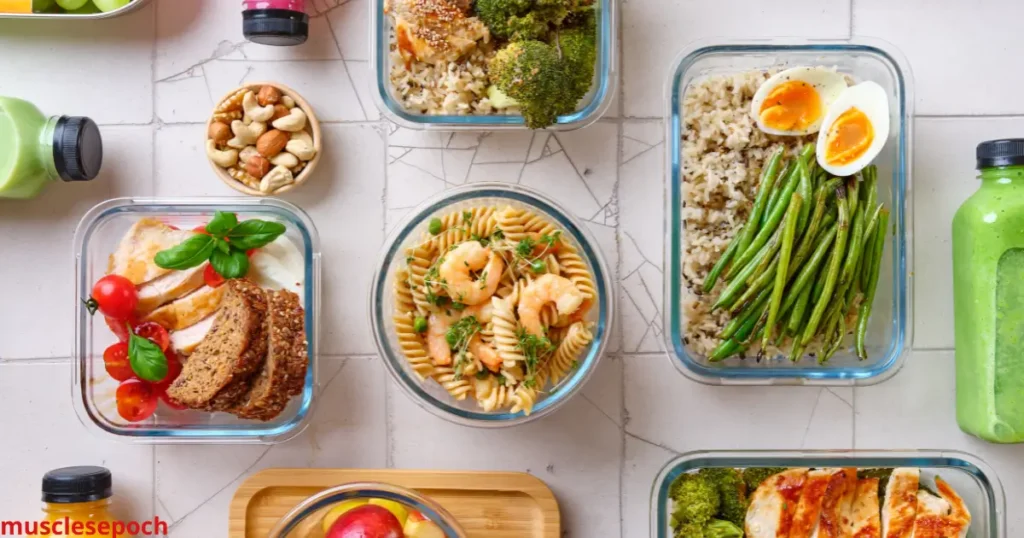
Ideal Macronutrient Ratios for Energy and Focus
Getting your macronutrient balance right is key to unlocking peak performance and sustained energy during workouts. Carbohydrates, proteins, and fats all play unique roles, and adjusting their ratios based on your workout goals — strength, endurance, fat loss, or muscle gain — can enhance both physical and mental output.
1. Carbohydrates: The Primary Fuel Source
Carbs are your body’s main energy source, especially for moderate to high-intensity training. They’re broken down into glucose and stored as glycogen in your muscles and liver — readily available during exercise.
- Pre-workout: A carb-focused meal or snack helps top off glycogen stores, leading to better energy levels and focus.
- Ideal Ratio: 45–65% of your meal, depending on your energy demands and intensity of training.
- Best Sources: Oats, sweet potatoes, brown rice, fruits, and whole-grain bread.
Tip: Low-carb intake can cause sluggishness and lack of mental clarity, especially in high-performance training.
2. Protein: Muscle Support and Mental Alertness
Protein isn’t just for recovery — it also plays a role in sustaining energy and mental sharpness. Amino acids help prevent muscle breakdown during long sessions and stabilize blood sugar levels, which supports focus.
- Pre-workout: Including moderate protein helps reduce muscle damage.
- Post-workout: Helps initiate muscle protein synthesis and repair.
- Ideal Ratio: 20–30% of your meal, depending on your goals and intensity.
- Best Sources: Eggs, Greek yogurt, lean chicken, whey protein, or plant-based alternatives.
3. Fats: Endurance Fuel and Hormonal Support
Healthy fats provide long-lasting energy and support hormonal balance, which is especially important for strength and hypertrophy. Fats are more useful for lower-intensity or longer-duration workouts and shouldn’t be neglected.
- Pre-workout: A small amount of fat slows digestion just enough to provide sustained energy.
- Post-workout: Less critical immediately after a workout but beneficial in later meals.
- Ideal Ratio: 15–25% of your meal.
- Best Sources: Avocado, nuts, seeds, olive oil, and fatty fish like salmon.
Sample Macronutrient Breakdown (for General Training)
| Goal | Carbs | Protein | Fats |
|---|---|---|---|
| Strength/Power | 40% | 35% | 25% |
| Endurance | 55% | 25% | 20% |
| Fat Loss | 30% | 40% | 30% |
| Muscle Gain | 50% | 30% | 20% |
Final Tip: Adjusting your macronutrient ratios is a personal process. Keep track of how different meals affect your energy, mood, and focus, and use that feedback to fine-tune your intake.
Top Foods to Eat Before Exercise
What you eat before a workout can significantly affect your energy levels, performance, endurance, and even recovery. The ideal pre-workout foods are easily digestible, rich in complex carbohydrates, and contain a moderate amount of protein, with minimal fat and fiber to avoid sluggishness or stomach discomfort.
Here are some of the top food options to fuel your body properly before you train:
1. Oats with Banana and Honey
A classic and effective pre-workout meal, oatmeal provides slow-digesting complex carbs, while the banana adds fast-acting natural sugars and potassium to prevent muscle cramps. A drizzle of honey can give you a quick energy boost.
- Why it’s great: Sustained energy + fast-acting glucose for a balanced fuel source.
- When to eat: 60–90 minutes before your workout.
2. Greek Yogurt with Berries and Chia Seeds
Greek yogurt is packed with protein and calcium, and when combined with berries, it becomes a powerful mix of simple sugars and antioxidants. Chia seeds add omega-3s and just enough fiber to promote endurance without causing bloat.
- Why it’s great: Light, protein-rich, and antioxidant-packed.
- When to eat: 45–60 minutes pre-workout.
3. Whole-Grain Toast with Peanut Butter and Apple Slices
This combo gives you complex carbs, healthy fats, and natural sugars — all in one. The peanut butter provides satiating fats and protein, while the apple delivers hydration and fast-digesting carbs.
- Why it’s great: Easy to digest and energy-packed without being heavy.
- When to eat: 60 minutes before training.
4. Chicken Breast and Sweet Potato (For Heavy Lifting Sessions)
If you’re doing a strength-focused or hypertrophy session and you’re eating a couple of hours before, this higher-protein, complex-carb meal is perfect. Sweet potatoes offer vitamin B6 for energy metabolism and steady glycogen replenishment.
- Why it’s great: Ideal for longer, more intense sessions.
- When to eat: 90–120 minutes prior to your workout.
5. Protein Smoothie with Spinach and Berries
If you’re short on time but need a nutrient-packed option, a protein smoothie can do the trick. Blend whey or plant-based protein powder with fruits, leafy greens, and even oats for a light but effective fuel-up.
- Why it’s great: Quick to prepare and digest; customizable.
- When to eat: 30–45 minutes pre-workout.
Quick Tip: Pre-Workout Timing Matters
- Large meals: Eat 2–3 hours before working out.
- Small meals/snacks: Eat 30–60 minutes before.
- Avoid too much fat or fiber close to workout time to prevent digestive discomfort.
Final Note: Tailor your pre-workout nutrition to the type and intensity of your exercise. Endurance training may require more carbs, while strength training can benefit from a higher protein ratio. Consistency and personalization are key to optimal performance.
When to Eat Before Working Out
Timing your pre-workout meal is just as important as what you eat. Eating at the right time ensures your body has enough readily available energy to fuel your workout, without making you feel sluggish or bloated. If you eat too close to training, you might experience digestive discomfort; if you wait too long, your energy levels may drop, affecting performance and stamina.
1. 2–3 Hours Before Exercise: Balanced Meal
This is the ideal window for consuming a full, balanced meal if you have the time. Aim for a mix of:
- Complex carbohydrates (brown rice, quinoa, sweet potato)
- Lean proteins (chicken, turkey, tofu)
- Minimal fats (avocado, olive oil)
This timing allows your body to digest and absorb nutrients, top off glycogen stores, and avoid stomach upset during training. It’s best for weightlifting, endurance sessions, or high-intensity workouts.
Example: Grilled chicken breast, brown rice, and steamed broccoli
2. 60–90 Minutes Before Exercise: Light Meal or Snack
If you’re eating closer to your workout, go for something lighter and quicker to digest, primarily focusing on carbohydrates with some protein. Limit fats and fiber to avoid slow digestion.
- Good options: Greek yogurt with fruit, oatmeal with banana, protein shake with berries.
This is a great time window for those with busy schedules or morning workouts who can’t eat a full meal beforehand.
Example: Low-fat Greek yogurt with honey and blueberries
3. 30–45 Minutes Before Exercise: Quick Fuel Snack
If you’re really short on time, opt for a small, easily digestible snack that provides fast energy. Choose simple carbs and minimal protein.
- Examples: A banana, a slice of toast with jam, or a rice cake with peanut butter.
These snacks won’t weigh you down and will help you avoid low blood sugar during your workout.
Example: Banana or energy bar
4. Early Morning Workouts: Optional Fasted or Small Snack
For early risers, fasted workouts are sometimes preferred, especially for low-intensity cardio. However, if you’re strength training or doing high-intensity work, a small snack may improve performance.
- Try: A banana, half a protein shake, or a piece of toast 20–30 minutes before.
Avoid heavy meals right before training, especially if it involves core work or high exertion, to prevent cramping or nausea.
Summary Table: Pre-Workout Timing Guide
| Time Before Workout | Ideal Meal Type | Food Focus |
|---|---|---|
| 2–3 hours | Full, balanced meal | Carbs + Protein + Veggies |
| 60–90 minutes | Light meal or hearty snack | Carbs + Protein |
| 30–45 minutes | Quick snack | Simple Carbs + Little Protein |
| 15–30 minutes | Only if necessary | Fast-digesting snack |
Final Tip: The best pre-workout timing depends on your personal digestion and training goals. Experiment with timing and food types to see what gives you the best performance and comfort during your sessions.
What to Eat After a Workout – Post-Workout Recovery Meals
The Anabolic Window – Myth or Must?
The term “anabolic window” refers to a short period—typically 30 to 60 minutes post-exercise—when your body is believed to be primed to absorb nutrients, especially protein and carbohydrates, to stimulate muscle repair and growth. For years, it was considered critical to consume a post-workout shake or meal within this timeframe to maximize muscle gains.
But does science support the urgency? Let’s take a closer look.
1. The Origins of the Anabolic Window Theory
The idea gained popularity in the bodybuilding and fitness communities, suggesting that missing this window could compromise gains. The logic was that after intense training, your body is in a catabolic state (breaking down muscle tissue), and rapidly providing nutrients could switch it into an anabolic state (building muscle) more efficiently.
Early studies supported this concept, showing improvements in muscle protein synthesis (MPS) when nutrients were consumed right after workouts.
Key takeaway: Post-workout nutrition is important, but it’s not the only factor driving muscle growth.
2. Recent Research and Evolving Views
Recent evidence suggests the “window” is not as narrow or critical as once believed. What matters more is total daily protein intake, meal distribution, and your last pre-workout meal.
If you consumed a protein-rich meal within 1–2 hours before training, your body is still digesting and utilizing those nutrients during and after the session. This means the urgency to eat immediately post-workout is less critical.
A 2013 study in the Journal of the International Society of Sports Nutrition concluded that the anabolic window may last several hours—not just 30 minutes—and total protein intake matters more than timing alone.
3. Practical Guidelines: Should You Worry About the Anabolic Window?
While you don’t need to panic about hitting a 30-minute window, it’s still smart to refuel within 1–2 hours after your workout, especially if:
- You trained fasted or early in the morning
- You performed an intense strength or endurance session
- You haven’t eaten anything in the hours before training
A post-workout meal or shake containing 20–40g of protein and 30–60g of carbohydrates can still help optimize recovery, reduce muscle breakdown, and restore glycogen.
Example post-workout meal: Grilled chicken breast, sweet potato, and steamed vegetables OR a whey protein shake with a banana.
Bottom Line
The anabolic window is not a myth, but it’s not a must in the rigid sense either. Instead of stressing about the clock, focus on:
- Meeting your total daily protein goal
- Eating balanced meals every 3–5 hours
- Including a high-protein, moderate-carb meal post-workout—ideally within 2 hours
Consistency and quality nutrition throughout the day matter far more than obsessing over minutes after you finish your last set.
Best Protein and Carb Sources for Recovery
After a tough workout, your body craves two key nutrients: protein to rebuild muscle and carbohydrates to replenish glycogen stores. Choosing the right sources of each can significantly enhance recovery, reduce muscle soreness, and support muscle growth over time.
1. High-Quality Protein Sources
Post-workout, your muscles are primed to absorb amino acids to repair and grow. That’s why complete proteins—which provide all essential amino acids—are your best option.
Here are some of the top protein sources for effective recovery:
- Whey Protein: Fast-digesting and rich in leucine (a key amino acid for muscle synthesis). Ideal in shakes right after workouts.
- Chicken Breast: A lean, complete protein that’s great for rebuilding muscle without excess fat.
- Eggs: Contain high-quality protein and healthy fats. One of the most bioavailable sources of amino acids.
- Greek Yogurt: High in casein and whey proteins—great for a slower, sustained amino acid release.
- Tofu and Tempeh: Great for plant-based athletes; both are high in protein and contain essential amino acids.
- Fish (like Salmon or Tuna): Not only rich in protein, but also loaded with omega-3s to reduce inflammation.
Tip: Aim for 20–40 grams of protein post-workout, depending on your body size and training intensity.
2. Optimal Carbohydrate Sources for Glycogen Replenishment
Your muscles rely on glycogen (stored carbohydrates) for energy. Post-workout, replenishing these stores is key—especially if you train frequently or perform high-intensity sessions.
Here are some of the best carb sources to consider:
- Sweet Potatoes: Complex carbs rich in fiber, potassium, and vitamins—ideal for slow, sustained recovery.
- Bananas: Quick-digesting carbs and potassium to help with muscle cramps and electrolyte balance.
- White Rice: Easily digestible and excellent for post-workout glycogen refueling.
- Oats: A great source of slow-digesting carbs and fiber; combine with protein for a complete recovery meal.
- Quinoa: Contains both complex carbs and a small amount of complete protein—great for plant-based athletes.
- Whole Grain Bread or Wraps: Perfect for building quick recovery meals like chicken sandwiches or turkey wraps.
Tip: Aiming for 30–60 grams of carbohydrates post-workout will aid recovery and reduce fatigue.
3. Balanced Post-Workout Meal Ideas
Here are a few easy examples that combine both protein and carbs:
- Whey protein shake + banana
- Grilled chicken + sweet potato + steamed broccoli
- Greek yogurt + oats + berries
- Egg scramble with whole grain toast
- Salmon + quinoa + mixed vegetables
Reminder: Timing is helpful, but consistency is king. Prioritize whole foods and nutrient-rich combinations to support long-term performance and gains.
Supplements to Support Post-Workout Nutrition
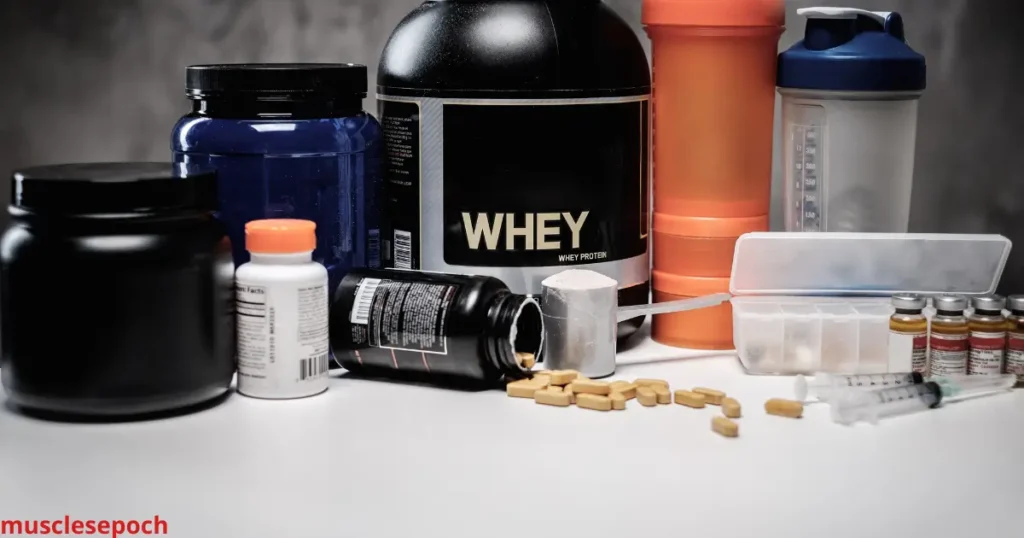
While whole foods should always form the foundation of your nutrition plan, supplements can offer added convenience and nutritional precision—especially in the critical post-workout window when your body is primed to absorb nutrients. The right supplements can help accelerate recovery, reduce soreness, replenish energy stores, and support muscle growth.
1. Whey Protein – Fast and Effective Muscle Repair
Whey protein is one of the most widely used and research-backed supplements for post-workout recovery. It’s a complete protein rich in branched-chain amino acids (BCAAs), especially leucine, which directly stimulates muscle protein synthesis.
- Why it’s effective: Rapidly digested and absorbed, making it perfect for the 30-minute post-workout window.
- How to use it: Mix 1 scoop (20–25g of protein) with water or milk within 30 minutes of training.
- Pro tip: Look for whey isolate if you’re lactose intolerant—it’s lower in carbs and fat.
2. Creatine Monohydrate – For Strength and Muscle Volume
Creatine helps restore ATP (your body’s primary energy source for explosive movements) and supports increased strength, muscle mass, and performance over time.
- Why it’s effective: Enhances recovery and performance, particularly in strength-based workouts.
- How to use it: Take 3–5g post-workout daily, either with your shake or in a recovery drink. No need to cycle.
- Bonus: Creatine works best when taken consistently, not just on workout days.
3. BCAAs (Branched-Chain Amino Acids) – Muscle Protection
Though whole protein sources contain BCAAs, standalone BCAA supplements can help reduce muscle soreness and prevent muscle breakdown during intense or prolonged workouts.
- Why it’s effective: Supports endurance, reduces fatigue, and stimulates muscle repair.
- How to use it: Take 5–10g during or immediately after training.
- Caution: Not necessary if you’re already consuming enough high-quality protein.
4. L-Glutamine – Recovery and Immune Support
Glutamine is an amino acid that plays a role in muscle repair and immune system health, especially important during periods of high training volume.
- Why it’s effective: May reduce post-workout soreness and improve muscle hydration.
- How to use it: 5g post-workout is a common dosage.
- Note: While not essential for everyone, it can be helpful for athletes under high stress.
5. Carbohydrate Powders – Replenishing Energy Stores
Fast-digesting carbohydrate powders like dextrose or maltodextrin can be mixed with your protein shake to speed up glycogen replenishment—especially useful for athletes training multiple times a day.
- Why it’s effective: Helps refill muscle glycogen stores quickly post-training.
- How to use it: Combine 20–60g with your post-workout shake depending on your workout intensity and body weight.
6. Electrolyte Supplements – Rehydration and Recovery
If your workouts involve heavy sweating (due to heat or intensity), electrolyte supplements help restore minerals like sodium, potassium, and magnesium, which are critical for hydration, muscle function, and reducing cramps.
- Why it’s effective: Supports proper hydration and muscle recovery.
- How to use it: Consider a post-workout drink or tablet if you sweat excessively or train in hot environments.
Final Tip:Supplements should supplement your nutrition—not replace it. Always prioritize a balanced diet, then use these tools to fine-tune your recovery and performance based on your goals, workout intensity, and daily lifestyle.
Building a Balanced Workout Meal Plan
Sample Pre and Post-Workout Meal Plan
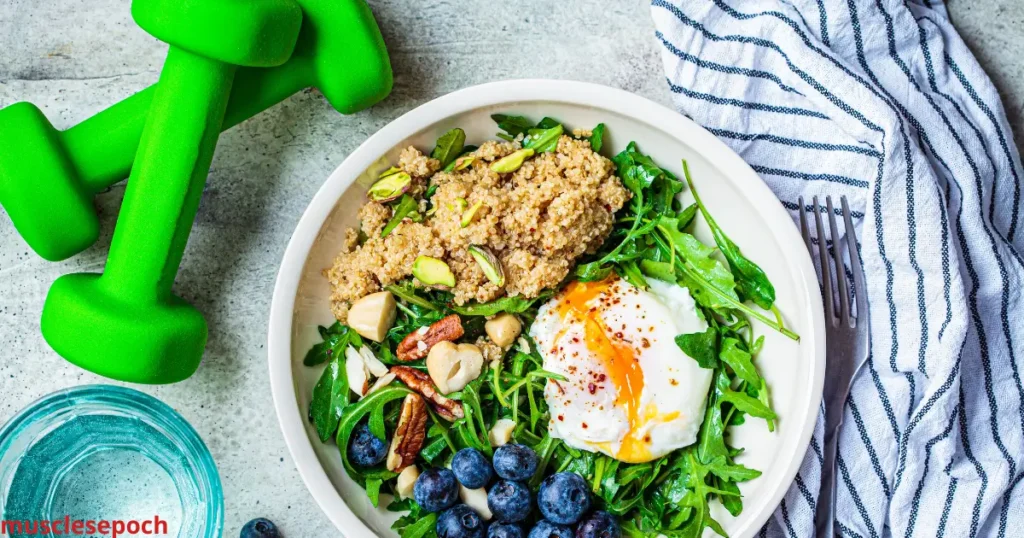
A well-structured meal plan around your workouts can significantly improve energy levels, enhance performance, and speed up recovery. Timing and quality of nutrients are key—your body requires the right fuel before training and the proper nutrients afterward to rebuild and grow stronger. Below is a sample pre- and post-workout meal plan that combines balanced macronutrients and practical food options for optimal results.
Pre-Workout Meal Plan (60–90 Minutes Before Training)
Goal: To provide sustained energy, prevent muscle breakdown, and support mental focus during exercise.
- Carbohydrates: Supply quick-access energy and preserve muscle glycogen stores.
- Protein: Helps prevent muscle breakdown and primes your body for muscle repair.
- Fats: Keep to a minimum as they slow digestion.
Example Meal:
- Grilled Chicken Wrap (whole grain wrap + grilled chicken breast + spinach + a dash of mustard)
- 1 small banana
- Water or black coffee (optional for a caffeine boost)
Alternative Quick Option (30 min before):
- Greek yogurt with a small handful of berries
- Rice cake with almond butter
Post-Workout Meal Plan (Within 30–60 Minutes After Training)
Goal: To replenish glycogen, initiate muscle repair, and reduce soreness or fatigue.
- Protein: Critical for muscle protein synthesis and recovery.
- Carbohydrates: Replenish depleted glycogen and help shuttle nutrients into muscles.
- Fluids: Rehydrate and replace lost electrolytes.
Example Meal:
- Grilled salmon (or lean chicken breast)
- 1 cup brown rice or quinoa
- Steamed broccoli or mixed greens
- 1 glass of water with a pinch of sea salt or an electrolyte tablet
Alternative Shake Option (if you’re on the go):
- 1 scoop whey protein
- 1 banana or ½ cup oats
- 1 tbsp peanut butter
- Water or almond milk
Timing Tips:
- If you’re eating 2+ hours before training, include a larger meal with balanced macros.
- For training in the morning, opt for a light and easily digestible snack 30–45 minutes before.
- Always hydrate before and after workouts—this supports digestion and nutrient transport.
Final Thoughts:Meal plans should match your individual goals, body type, and training intensity. Whether you’re trying to lose fat, gain muscle, or improve endurance, tailoring your pre- and post-workout meals will help maximize every workout session. Planning ahead ensures you’re never under-fueled or missing the critical window for recovery.
Nutrient Timing for Different Fitness Goals
Nutrient timing—the strategic consumption of nutrients around your workouts—can significantly impact your progress depending on your specific fitness goals. Whether you’re aiming to build muscle, lose fat, improve endurance, or enhance overall health, adjusting when and what you eat in relation to your exercise sessions can help optimize results.
1. Muscle Building (Hypertrophy Focus)
For those focused on muscle gain, nutrient timing revolves around maximizing protein synthesis and replenishing energy stores:
- Pre-Workout: Consume a balanced meal rich in protein and moderate carbohydrates about 60–90 minutes before training. This fuels your muscles and primes them for growth.
- Post-Workout: The post-exercise period is crucial for muscle repair. Aim to eat a high-protein meal combined with fast-digesting carbohydrates within 30–60 minutes to stimulate muscle protein synthesis and replenish glycogen.
- Throughout the Day: Spread protein intake evenly every 3–4 hours to maintain a positive muscle-building environment.
2. Fat Loss (Cutting or Weight Management)
When the goal is fat loss, nutrient timing helps maintain energy levels and preserve lean muscle:
- Pre-Workout: Focus on a small, low-calorie meal or snack with moderate protein and carbohydrates to sustain energy without excess calories.
- Post-Workout: A protein-rich meal with moderate carbs supports muscle preservation and recovery without promoting fat gain.
- Intermittent Fasting or Carb Cycling: Some individuals may use specific nutrient timing strategies like intermittent fasting or carb cycling to optimize fat loss, aligning carb intake around workouts for energy and recovery.
3. Endurance and Performance
Endurance athletes require sustained energy and quick recovery:
- Pre-Workout: Prioritize easily digestible carbohydrates with some protein to top off glycogen stores and prevent muscle breakdown.
- During Workout: For prolonged sessions, ingest carbohydrates through sports drinks or gels to maintain energy.
- Post-Workout: Consume carbohydrates promptly to replenish glycogen, along with protein to repair muscle damage.
- Hydration: Crucial before, during, and after to maintain performance and recovery.
4. General Health and Maintenance
For those focused on overall wellness or moderate fitness goals:
- Balanced Meals: Regular, balanced meals with protein, healthy fats, and complex carbs spaced throughout the day support steady energy and recovery.
- Flexible Timing: Nutrient timing is less critical; focus on overall nutrient quality and consistency.
Summary
Understanding nutrient timing tailored to your fitness goals can enhance your workout effectiveness and recovery. While precise timing benefits competitive athletes and bodybuilders most, even casual exercisers can improve results by aligning meals with their training schedule. Remember, consistency, meal quality, and overall calorie balance remain the foundation of success.
Common Mistakes to Avoid in Workout Nutrition
Optimizing your workout nutrition is crucial for maximizing performance, recovery, and results. However, many people unknowingly make nutrition errors that can hinder their progress. Being aware of these common pitfalls will help you stay on track and get the most from your training efforts.
1. Skipping Pre-Workout Meals or Eating Too Close to Exercise
Some people skip eating before a workout, thinking it will burn more fat, but this often leads to low energy, poor performance, and early fatigue. On the flip side, eating a heavy meal right before training can cause discomfort or sluggishness. The ideal approach is to eat a balanced meal 60–90 minutes before exercising, focusing on easily digestible carbs and moderate protein to fuel your workout without gastrointestinal issues.
2. Neglecting Post-Workout Nutrition
Post-workout nutrition plays a vital role in muscle recovery and glycogen replenishment. Skipping this meal or waiting too long to eat after training can delay muscle repair, increase soreness, and limit gains. Aim to consume protein and carbohydrates within 30–60 minutes post-exercise to kick-start recovery processes.
3. Overconsuming Protein While Ignoring Other Nutrients
Protein is essential for muscle growth and repair, but overemphasizing it while neglecting carbohydrates and fats can be counterproductive. Carbohydrates provide the energy needed for intense workouts and replenish glycogen, while fats support hormone production and overall health. A balanced intake of all macronutrients is key for optimal performance and recovery.
4. Relying Too Much on Supplements Instead of Whole Foods
Supplements like protein powders and energy bars can be convenient but should not replace whole foods. Whole food sources provide additional nutrients such as vitamins, minerals, and fiber that supplements often lack. Prioritize nutrient-dense meals first, using supplements only to fill specific gaps.
5. Ignoring Hydration
Proper hydration is often overlooked but is essential for workout performance and recovery. Dehydration can cause fatigue, muscle cramps, and impaired focus. Drink water throughout the day, and consider electrolyte replacement during prolonged or intense exercise sessions.
6. Not Adjusting Nutrition Based on Workout Intensity and Goals
Your nutritional needs vary depending on whether your goal is fat loss, muscle gain, endurance, or general fitness. Using a “one size fits all” nutrition approach can limit progress. Tailor your calorie and macronutrient intake according to your specific goals, workout intensity, and duration for best results.
Summary
Avoiding these common nutrition mistakes will help ensure your body has the fuel it needs to perform, recover, and adapt to training. Remember, consistency, balance, and timing in your nutrition strategy are just as important as your workouts themselves.
Conclusion
Mastering pre- and post-workout nutrition doesn’t require complicated plans—just smart timing and balanced choices. Eating the right foods before a workout powers your performance, while proper post-workout meals kickstart recovery and muscle growth. Whether you’re a beginner or a seasoned athlete, aligning your nutrition with your training can take your fitness journey to the next level. Start with the strategies in this guide and adjust them based on your goals and how your body responds. Consistency, quality nutrients, and good timing are the keys to long-term progress.
